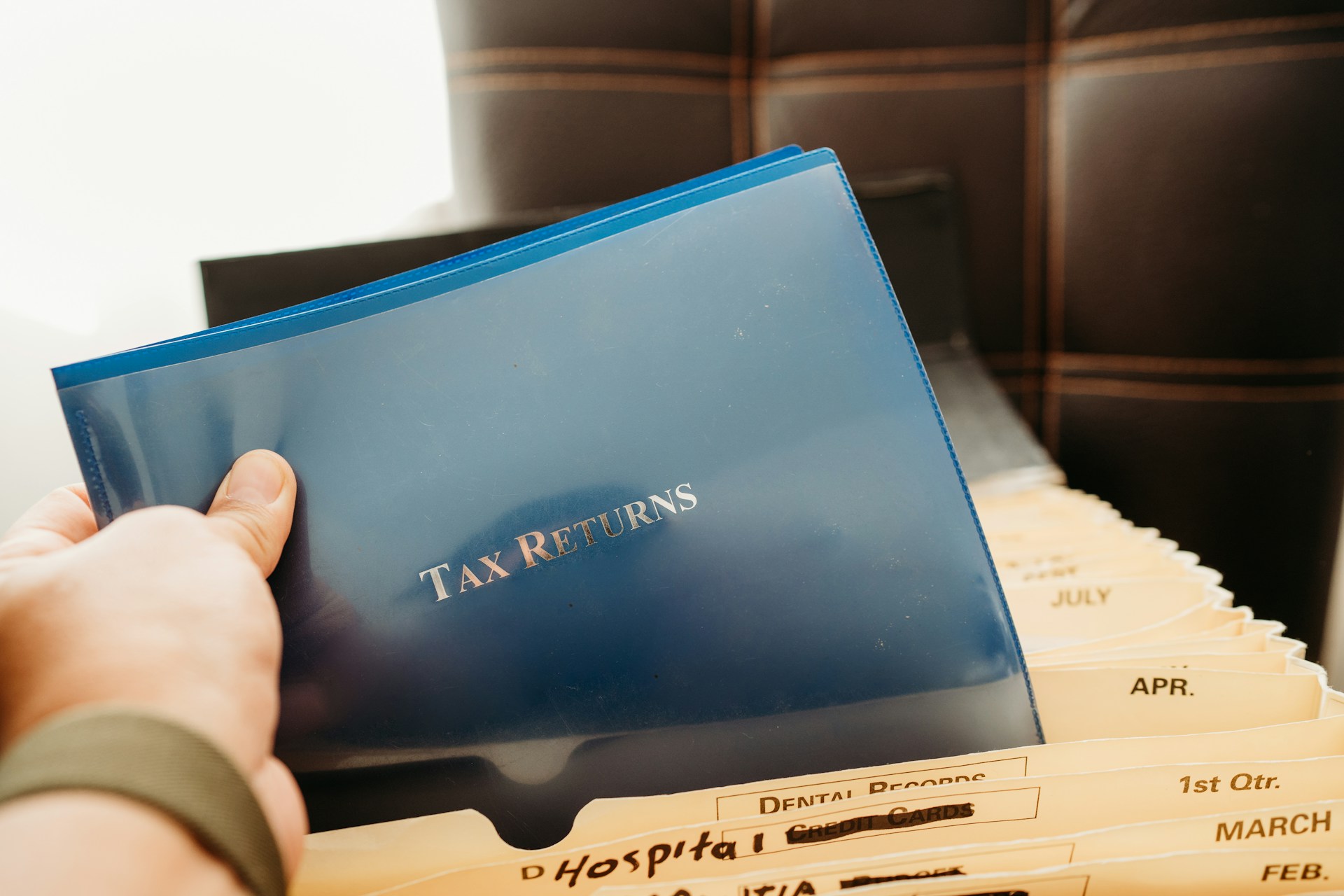Getting a letter that your tax return has been flagged for review can be nerve-racking. Your mind races, wondering what went wrong or if you made a serious mistake. It’s a situation no one wants to deal with, especially after you’ve already spent time gathering documents and submitting your return. But the good news is, being flagged doesn’t always mean you’re in trouble. Many times, it has more to do with missing info or something that just needs a little extra verification.
Taking the right steps early can make a huge difference. Whether the review was triggered by a math error, confusion about a deduction, or a simple mismatch of records, it helps to know what to expect and how to handle it. Here’s what to do when your tax return gets flagged and how to work through it without adding more stress.
Understand Why Returns Get Flagged
Tax returns can get flagged for several reasons, and knowing what those reasons are can help lessen the anxiety. Sometimes the IRS just wants to double-check part of your filing. It doesn’t automatically mean there’s something wrong, but it does mean a closer look is needed.
Here are a few common reasons a return might be flagged:
– Incorrect or mismatched Social Security numbers
– Missing or incorrect forms, like W-2s or 1099s
– Significant differences in income compared to past years
– Large deductions that seem out of step with your income
– Claiming credits or deductions without needed backup
– Errors in math or missing schedule entries
Some of these triggers are automatic. For instance, if a 1099 says you received income of a certain amount, but your return shows something else, that’s going to raise a flag. The IRS’s system flags even minor inconsistencies, including typos or small mistakes.
To avoid these issues down the line, check over every detail before you submit. Make sure numbers line up with your actual documents and records. No number is too small to matter. A single incorrect digit can throw off your whole return, so double-check everything.
Stay Calm and Organized
If your return does get flagged, the most helpful thing you can do first is stay calm. It might be tempting to toss the letter aside and avoid thinking about it, but that only makes the process harder. Take a breath, look over what the IRS is asking, and start gathering the related documents.
Start with the basics. Read the notice carefully. It should tell you what part of the tax return is being reviewed. From there, collect all the information connected to that topic. If it’s your business deductions, grab logs, receipts, and anything else tied to those claims. If it’s about education credits, find your tuition statements or bills.
Keep everything in one place. Use a folder or create a file on your computer. It also helps to have a timeline so you can track when you received the letter, what step you’re on, and by when you plan to reply. Keep notes of every document you review or print. That way, you’re not redoing work or losing track of what you’ve already gathered.
For instance, someone might forget they received a digital-only 1099 and not report it. Later, that triggers a flag when the IRS sees the form they never opened. These things happen more than people realize, which is why being organized is a big help.
Having everything in order before moving forward makes things easier and quicker. Once you feel comfortable with your records, it’s time to get in touch with the IRS.
Contact the IRS With the Right Information
When it comes to reaching the IRS, sooner is better. Don’t wait weeks hoping the issue will go away. Start the contact process once you’ve organized your documents.
The notice you received should include instructions, a phone number, or an address. Some reviews can be handled by mailing in missing paperwork, while others may require a call.
Before making a call, have these items ready:
– Your copy of the tax return you filed
– The notice or letter from the IRS
– Any records or proof related to the flagged issue
– A notepad and pen for jotting notes
– Your Social Security number
– A calm mindset to stay focused
When you’re on the phone, explain your side clearly and simply. If you made an error, say so. If you’re unsure why you were flagged, kindly ask the representative to explain what you’re missing. Take notes on who you spoke with and what was said during the call, including the date and time.
Having a polite and prepared approach can go a long way. IRS representatives deal with these calls daily, and staying focused on solving the issue keeps things productive.
Respond Clearly and Back It Up
Once you’ve confirmed what the IRS needs, the next step is your response. Responses matter, and sending one that’s clear and complete helps resolve things faster.
Make sure your reply includes:
1. A short explanation of the issue
2. A list and copies of supporting documents
3. The correct mailing address or upload location
4. A signature and date if required
5. Everything sent in one well-organized package
Don’t send documents in pieces. If the IRS asked for three items, make sure all three are in the envelope or file. When writing your explanation, be brief. For example, say, “This deduction for internet expenses is supported by the attached monthly invoices.” That’s better than giving a full breakdown unless asked.
Make copies of everything. If you’re mailing it, pay for tracking, or take a picture of the shipping receipt. If you’re uploading through an online portal, save a screenshot of the confirmation. If anything goes missing, you’ll have proof of what and when you submitted.
No one looks forward to this step, but putting in the work shows you’re trying to fix the issue. Most of the time, the more complete your reply, the faster the process gets resolved.
Know When to Bring in Professional Help
Even if things seem manageable at first, it’s easy to feel overwhelmed. Tax codes are complex and every detail matters. If you’re unsure how to collect the right paperwork or you’re stuck trying to understand what the letter actually means, it’s helpful to bring in a tax professional.
Tax advisors and preparers like those at Speedy Tax Preparation & Bookkeeping Service have the experience to deal with these problems. They know how to respond, how to talk to the IRS, and how to double-check your past filings for any missing pieces. They also understand North Carolina tax details and how they fit into larger federal filings.
Hiring a local professional not only clears up the current issue but helps prevent future ones. When someone who knows the system reviews your return, flags become less likely. They can recommend what documents to save and what numbers to double-check next season.
You don’t have to take on the stress alone. Getting help early could mean fewer issues later.
Keep Future Returns on the Right Track
Going through a flagged return may not be pleasant, but it gives you a great opportunity to get better at filing. Every bit of information you learn now makes next year smoother.
Keep a record of what caused the flag. Maybe you forgot to include one form, made a mistake on a deduction, or had a mismatch in income reporting. Whatever the case, write it down. Use that knowledge to get ahead next time.
As the new tax season approaches, make a checklist of everything you need. Store digital and paper versions of important forms. Don’t throw things away too quickly. Give yourself plenty of time before the deadline so you’re not rushing and risking mistakes.
Little habits make a big difference. Save your receipts throughout the year. File documents as you receive them. Double-check numbers before submitting anything. Over time, all these small actions help reduce flags and confusion.
Taking the time now to organize yourself means fewer headaches during next year’s tax season. And if you feel unsure, getting help from experts in North Carolina personal tax preparation can make all the difference. You’ll get peace of mind knowing someone has your back when it matters.
To make sure your filing experience is smooth and stress-free, consider enlisting the help of Speedy Tax Preparation & Bookkeeping Service. With our expertise in personal tax preparation in Elizabethtown, North Carolina, you can navigate your return with confidence and avoid unnecessary complications as you prepare for the next tax season.







